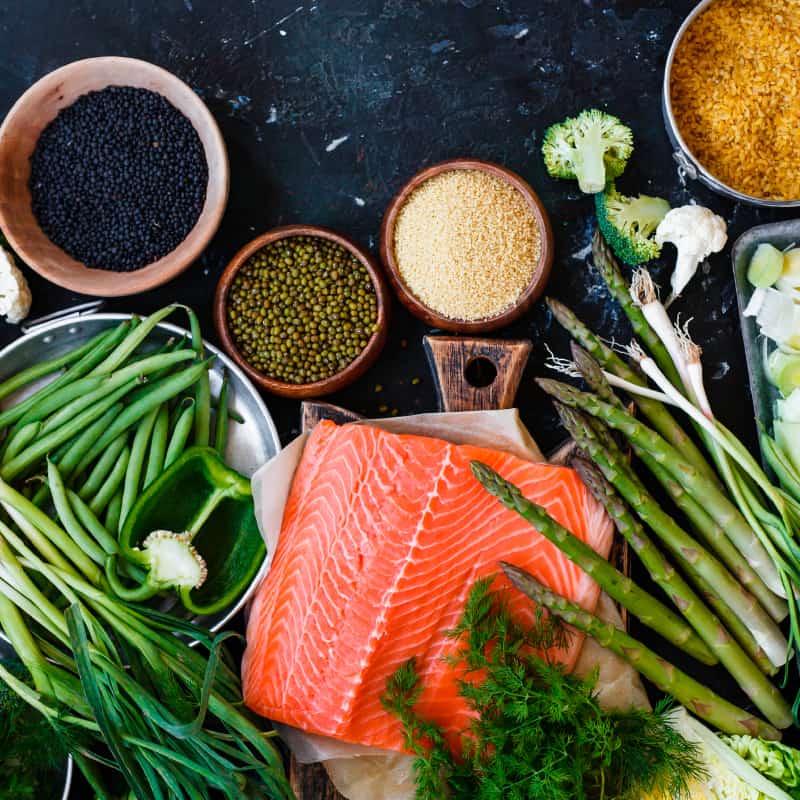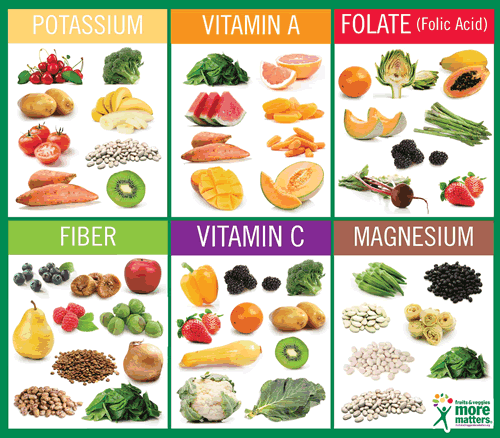
Whether you're looking to cut costs on your next grocery trip or you just want to eat healthy on a budget, there are some strategies you can follow to get the most bang for your buck. These tips will help you to save money and stick to your healthy eating habits.
Buy in bulk is one of the best ways to save money. Bulk products can be as cheap as packaged ones. You can also check out your local grocery stores. This will allow you to buy fresh produce in season. This will also benefit the local economy and ensure that fresher food is available.
Meal planning is another way to save money and eat healthy on a budget. This can help you make healthier choices and avoid impulse buys. It is possible to create a list with healthy ingredients and meals, then buy them when they are on offer.

You can organize your grocery list by aisle or store section. Avoid convenience foods and prepackaged snacks. They are loaded with sodium, saturated and added fats.
For the best deals, shop at a grocery store that offers coupons or rewards. Also, check out nearby stores to find the best prices. You can also sign up to store rewards programs. It is easy to spend more than you know what to on groceries, and these rewards can help you stretch your dollar.
You should cut down on your spending when on a budget. This is particularly true for processed food and fast foods. These foods are high in salt and sugar and are not as healthy for you as making your own food.
One of the most important tips for saving money while eating healthy on a budget is to prepare your own meals. It is possible to save money by eliminating unnecessary items from your weekly grocery list and by cooking large portions at home. This will save you money on other products. If you have leftovers, you can create a healthy lunch the next day. Make sure you order water and a salad when dining out.

For healthy meals you can use leftovers. For instance, you can make a stir fry with leftover cruciferous vegetables. A salad can also be made with leftover meat. In addition, you can make your own stock by adding bones or vegetable scraps to a pot.
You may also want to buy some of the cheapest fruits and vegetables you can find. If you're short on time, frozen fruits are an excellent option. They're also great in smoothies. They are also available in bulk bins.
Make a list for quick, healthy meals you can make for your family when you are short on time. You can also sign up for a meal planning service, such as Rachel Cruze's Thrive Market. Her free meal planning guide includes a grocery shopping list.
FAQ
How can I lower my blood pressure
First, you must determine what is causing high blood pressure. You must then take steps towards reducing the problem. This could include eating less salt, losing weight if necessary, taking medication, etc.
Also, make sure to get enough exercise. Walking is a great alternative if you don't have the time or energy to exercise regularly.
A gym membership is a good idea if you don't like how much exercise your doing. A gym that has other members who share your goals will be a good place to start. It is easier to adhere to a fitness routine when someone else will be there with you.
How can I live the best life possible every day?
Find out what makes YOU happy. This is the first step in living a life that you love. Once you are clear about what makes you happy and satisfied, you can move on to the next step. Asking others about their lives can help you to see how they live the best life possible.
You can also read books like "How to Live Your Best Life" by Dr. Wayne Dyer. He talks about how to find happiness and fulfillment at all stages of our lives.
How to measure bodyfat?
A Body Fat Analyzer will give you the most accurate measurement of body fat. These devices are used for measuring the percentage of body fat in people who want to lose weight.
How do I count calories?
You may wonder, "What diet is best for you?" or "is counting calories necessary?" Well, the answer depends on several factors including your current health status, your personal goals, your preferences, and your overall lifestyle.
Which one is right for you?
The best diet depends on me, my health, my goals, my lifestyle, and my preferences. There are many different diets, some good, some not. Some diets work for some people, while others are not. What should I do then? What can I do to make the right decision?
These are the questions this article will answer. It begins with an overview of the different diets today. After that, you will learn about the pros and disadvantages of each type. Then, we will discuss which diet is the best.
Let's look at some of the main types of diets to get started.
Diet Types
There are three main types. Low fat, high protein, or ketogenic. Let's take a look at them all below.
Low Fat Diets
A low-fat diet is one that limits the intake of fats. This is done through reducing the intake of saturated fats (butter, cream cheese, etc.) You can replace them with unsaturated oils (olive oil and avocados) A low fat diet is often recommended for those who want to lose weight quickly and easily. This type of diet can lead to constipation and heartburn as well as indigestion. Vitamin deficiencies can also occur if the person doesn't get enough vitamins through their diet.
High Protein Diets
High protein diets reduce carbohydrates to favor of proteins. These diets usually have higher amounts of protein than other diets. These diets are intended to increase muscle mass and reduce calories. Unfortunately, they can't provide adequate nutrition for those who eat regularly. They can also be very restrictive so they may not be suitable for everyone.
Ketogenic Diets
The ketogenic diet is also known by the keto diet. They are high-fat and low in carbs and protein. They are popularly used by bodybuilders, athletes, and others who want to be able to train harder and more efficiently without becoming tired. They do require strict compliance to avoid any side effects like fatigue, headaches, nausea, and headaches.
What's the difference between fat/sugar?
Fat is an important energy source, which comes from food. Sugar is naturally found in fruits and veggies. Both fats and sugars provide the same number of calories. However, fats contain more than twice as many calories as sugars.
Fats are stored within the body and can contribute to obesity. They cause cholesterol buildup in arteries which may lead to heart attacks and strokes.
Sugars are quickly absorbed and provide instant energy. This causes blood glucose levels in the body to rise. High blood glucose levels are dangerous as it can increase the likelihood of developing type 2 diabetes.
Why is it so important to lead a healthy lifestyle
Having a healthy lifestyle helps us live longer, happier lives. A healthy diet, regular exercise, good sleep habits, and stress management will help prevent diseases like heart disease, diabetes, cancer, and stroke.
A healthy lifestyle can also help improve mental health and make it easier to deal with everyday stressors. A healthy lifestyle will help you feel more confident and younger.
What does it take to make an antibiotic work?
Antibiotics can be used to kill bacteria. Antibiotics are used for treating bacterial infections. There are many options for antibiotics. Some can be taken orally, others are injected and some are applied topically.
Many people who have been exposed can be prescribed antibiotics. One example is if someone has had chickenpox and wants to prevent shingles. A penicillin injection might be given to prevent pneumonia in someone who has had strep.
If antibiotics are to be administered to children, they must be prescribed by a doctor. Children are at greater risk than adults for developing serious side effects from taking antibiotics.
The most common side effect of antibiotics is diarrhea. Other possible side effects include stomach cramps, nausea, vomiting, allergic reactions, headaches, dizziness, and rashes. These side effects typically disappear once treatment is complete.
Statistics
- WHO recommends consuming less than 5% of total energy intake for additional health benefits. (who.int)
- The Dietary Guidelines for Americans recommend keeping added sugar intake below 10% of your daily calorie intake, while the World Health Organization recommends slashing added sugars to 5% or less of your daily calories for optimal health (59Trusted (healthline.com)
- WHO recommends reducing saturated fats to less than 10% of total energy intake; reducing trans-fats to less than 1% of total energy intake; and replacing both saturated fats and trans-fats to unsaturated fats. (who.int)
- According to the 2020 Dietary Guidelines for Americans, a balanced diet high in fruits and vegetables, lean protein, low-fat dairy and whole grains is needed for optimal energy. (mayoclinichealthsystem.org)
External Links
How To
10 tips to a healthy lifestyle
How to live a healthy life
We live in a fast world where we don't get enough sleep, eat too much, drink too much alcohol and smoke cigarettes. We don't pay enough attention to our body's health.
When you work full time and have to balance your exercise and diet regimens, it can be hard to create a healthy lifestyle. Stress can make it more difficult if your mind is telling you that you cannot handle the situation anymore. This makes it all the more difficult.
It is possible that your body is experiencing problems. Talk to your doctor about your condition. If nothing is abnormal, it might be stress due to your job.
Some people think that they are lucky because their jobs allow them to go to gym regularly or they have some friends who help them to keep fit. Those people are lucky. These people have no problems. They got everything under control. I wish every person could be like them. Many of us aren't able to find the right balance between our personal and professional lives. Many people have bad habits that lead to illnesses such as heart disease and diabetes.
These are some tips to help you improve your life.
-
Get enough sleep, minimum 7 hours, maximum 8 hours. This means sleeping properly and not consuming caffeine in the hour before bed. Caffeine blocks melatonin hormones which makes it difficult to fall asleep. Also, make sure that your bedroom is clean and dark. Consider using blackout curtains, especially if working late at night.
-
Take a balanced breakfast. Avoid sugary products, fried foods, white breads, and processed food. Lunch should include fruits, vegetables, and whole grains. Afternoon snacks are recommended to be rich in protein and fiber, such as nuts, seeds, beans, fish and dairy products. Avoid unhealthy snacks like chips, candies, cookies, cakes and sodas.
-
Drink plenty of water. Almost everyone doesn't drink enough water. Water can help us burn more calories, keep our skin supple and young, flush out toxins and improve our digestion. Aim to drink six glasses of fluids daily to lose weight more quickly. The best way to measure your hydration level is by checking the color of your urine. Yellow means dehydrated; orange means slightly dehydrated; pink means normal; red means overhydrated; and clear means highly-overhydrated.
-
Exercise - Regular exercise has been shown to reduce depression and increase energy levels. Walking is a good way to get fit and improve your mood. Walking is easy, but it takes effort and concentration. Walking requires your brain to be focused on the task at hand, and you need to breathe slowly and deeply. A 30 minute walk at a moderate pace for about 100 calories can burn between 100-150 calories. Start slowly and increase your pace gradually. Stretch after exercising to avoid injuries.
-
Be positive - Positive thinking is essential for mental health. If we are positive, we create a happier environment in our minds. Negative thoughts can drain energy and cause anxiety. Focus on what you want and do the things that will keep you motivated. You can break down all the tasks into smaller pieces if you feel overwhelmed. Remember that you are bound to fail sometimes but just pick yourself up and start again.
-
Learn to say no. Too many people are so busy they don't even realize how much wasted time they waste on unnecessary tasks. It is important for you to know when to say no. Being polite when you say "no" does not mean that you are rude. You are simply saying "no" to something. You can always find other ways to complete the job later. Set boundaries. Ask someone to help. Or simply delegate this work to someone else.
-
Take care to your body. Healthy eating habits will increase your metabolism and help you lose weight. Avoid heavy and oily foods. They can raise cholesterol levels. Three meals and two snacks are a good rule of thumb. The recommended daily intake should be between 2000 and 2500 calories.
-
Meditation can be used to reduce stress and anxiety. You can relax your mind by simply sitting still and closing your eyes. This exercise will allow you to have clarity of thought which can be very useful in making decisions. Regular meditation practice will help you be calmer, happier, and more peaceful.
-
Don't skip breakfast - Breakfast is the most important meal of the day. Skipping breakfast can cause you to eat too much during lunch. It is never too late to eat a balanced breakfast as long as you eat within 1 hour of waking. Breakfast boosts energy and helps to manage hunger.
-
Healthy food is the best. Food can have a profound effect on our moods. Avoid junk food, artificial ingredients and foods that are high in preservatives. These foods can make your body more acidic and cause cravings. Fruits and vegetables are rich in vitamins and minerals that improve overall health.
-
***